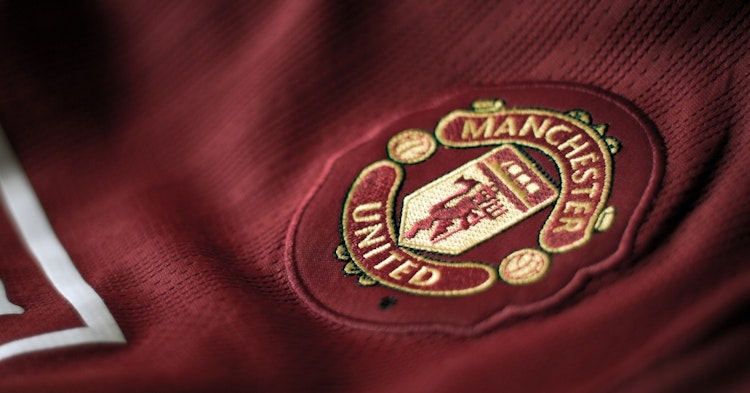Can Ole take Manchester United to the promised land?
Last updated: Aug 7, 2019, 1:27AM | Published: Jul 31, 2019, 11:15PM
This image is a derivative of red devils by William Brawley (CC BY 2.0)
Three managerial changes (in six seasons) and dwindling league finishes are just a few markers of the turmoil that has plagued Manchester United since the exit of the legendary Sir Alex Ferguson from the official ranks at the Theatre of Dreams.
For a club with the history and stature of Manchester United, winning 'just' one FA Cup, one EFL Cup and one Europa League in six seasons is simply unacceptable.
EDITORIAL: Are Tottenham Hotspur Actually Getting Ready to Win Something?
Since June 2013, Manchester United have spent over 850 million pounds and tried five different managers (including caretaker, Ryan Giggs). The list also includes Jose Mourinho, who is usually the ‘go-to’ guy for big, troubled clubs looking for a quick fix.
Unfortunately for fans of the club, every reasonable action seems to have been taken, but, to no avail. And, after six disappointing seasons, it isn’t unreasonable to ask when will United finally halt its seemingly endless downward spiral?
THE DEFENCE
Only one defensive midfielder:
Manchester United conceded 28 goals during the 2017/18 Premier League season, finishing second in the league. In contrast, they that tally nearly doubled last season, by conceding 54 goals, the most by any team in the Top 9 in the league; a tally that was also worse than both Crystal Palace and Newcastle United who finished 12th and 13th respectively.
Last year, United played with just one defensive central midfielder - Nemanja Matic - and, in front of an already weak defence. This flaw was easily exposed whenever United faced teams who were comfortable in possession, moving the ball quickly. Thanks to this misstep, the team was easily overrun in the centre of the park. Considering the fact that only Matic or Scott McTominay may be in the starting 11 this season to play the defensive midfielder position, this same problem may persist.
<ad>
Paul Pogba is expected to (if he stays at United) play as the second midfielder in the 4-2-3-1 formation, but his defensive abilities are not nearly as good as his attacking prowess. Unlike previous seasons where he’s played on the left side of the midfield, Pogba has been tried out as an RCM (right central midfielder) this pre-season. Interim-turned-fulltime manager, Ole Gunnar Solskjaer is banking on new signing Aaron Wan-Bissaka, who is quicker and defensively stronger than last season's right back guardian, Ashley Young, to cover for Pogba’s defensive deficiencies on the right side of the field.
(Manchester United’s 2019 pre-season match against Inter Milan)
The need for a new centre-back:
Former manager, Jose Mourinho, got many things wrong last season - which eventually led to his sacking - but the one thing he wasn’t wrong about was the need to add a new centre-back to the squad. Although Victor Lindelof was great last season, he’s still improving and adapting to life in English football. Eric Bailly has proven injury prone and has been ruled out of action for 4-5 months after suffering an injury in the pre-season match against Inter Milan.
Chris Smalling, going into his 10th season at Manchester Unirted, has never been a world-class central defender, and Phil Jones seems like a combination of Bailly’s injuries and Smalling’s mediocrity. Argentine Marcus Rojo, who has played only 14 Premier League matches in the last two seasons, still cannot be offloaded due to his long contract and high-wages at United.
If United are to improve defensively this season, Lindelof’s form will be crucial. Last season, United had a 48.27% win record whenever Lindelof started and the team conceded an average of 1.37 goals/match as opposed to 1.55 goals/match without the Swedish defender.
Liverpool invested over 75 million pounds for Virgil Van Dijk and in his first full season, Liverpool won the Champions League and narrowly missed out on their first-ever league title in the Premier League era. Manchester United have been chasingLeicester's England international, Harry Maguire, for months and (as of time of writing) still haven’t been able to seal the deal.
<ad>
United have already been rejected by Dutch teenage sensation Matthijs De Ligt, who chose Juventus over the English giants. Maguire might not be worth the 90 million price tag that Leicester have given him, but failing to do the deal could result in yet another disastrous season for United’s defence.
An actual right-back:
It’s no surprise that United shelled out big money for youngster, Aaron Wan-Bissaka, after having Antonio Valencia and Ashley Young as their first choice right-backs last year. While Valencia didn’t feature much in 2018/19, Young started 28 league matches with the side conceding an average of 1.46 goals per game and winning 46.42% (13 of 18) games. On the flip side, United conceded 1.3 goals per game with a win percentage of 60% (6 of 10) whenever Young did not feature in the starting 11.
Wan-Bissaka started his career as a winger before being moved deeper into the role of a full-back at the England U-23 level. He claims that his past experience as a winger gives him an innate sense of what his opponent might do next.
Last season, he ranked #3rd in the league for tackles per game and seventh for average interceptions. The 21-year old has been in great form this pre-season and, if his form continues, United might have finally solved their fullback dilemma.
STYLE OF PLAY
The last time Manchester United averaged 2+ goals per game in the Premier League was in Alex Ferguson's last season, where they scored 86 goals. Since then, the highest average has been 1.79 goals/game in 2017/18 when they tallied 68 goals.
Solskjaer certainly has shown a preference to play a much more offensive style of football compared to all three of his predecessors. In his first game in charge, Solkjaer's side produced the fastest ball movement for any team in the 2018/19 Premier League season with over 21.5 passes per minute.
High-intensity:
Quick passes, pressing the opposition high up the field and hitting teams on the counter-attack are major parts of Ole’s attacking system. This is almost diametrically opposite to the Jose Mourinho style of play which was much more patient, featured men behind the ball and rarely caught teams on a fast-break.
Ole had the world at his feet, winning 14 of his first 19 matches in charge but then the cracks started to show. The high-intensity press, fast passing and increased distance covered resulted in player injuries and fatigue. United’s season was derailed and instead of sprinting across the finish line, the Red Devils’ season slowed to a disappointing end.
In order to avoid this type of burn-out again, Solskjaer has focused specifically on his squad's fitness. Reports suggest that compared to the first two weeks of last year’s pre-season, the squad has undergone two extra sessions, with the total running up by 10% and high-intensity training increased by 50%.
<ad>
Width in attack:
Unlike Liverpool and Manchester City, United’s attack has been toothless for quite a while. While Man City have the likes of Sterling and Sane, Liverpool have Mane and Salah, United have had nobody to stretch defences on the wings. Rashford and Martial are inside forwards and Mata (the closest to a 'right-winger' that United had), at his age, is among the slowest players on the pitch. The rare width that United possessed in 18/19 was through their fullbacks - Luke Shaw, Ashley Young and Diogo Dalot.
New signing Daniel James, along with fellow youngsters, Mason Greenwood and Tahith Chong, might be expected to provide that width along with fullbacks Luke Shaw and Wan-Bissaka.
The picture below shows an example of how James and Wan-Bissaka stay wide and offer that much-needed width in attack.
POTENTIAL MANCHESTER UNITED STARTING XI:
With Romelu Lukaku seemingly not featuring in Ole’s plans, Anthony Martial and Marcus Rashford are set to take up the lead forward role this season. With strong rumours about Paulo Dybala (Juventus) landing at Old Trafford in an exchange for Lukaku, it could be Dybala or Jesse Lingard who starts in the 'number #10' role sitting behind the striker. United are looking at a fluid system which could see the three players behind the striker playing a game of musical chairs, swapping positions in-play.
Based on what happens with the Harry Maguire deal, the defence should pretty much select itself, while it will be interesting to see if McTominay gets the nod ahead of the more experienced Nemanja Matic. Nearly every single goal in pre-season has involved a Manchester United academy player, which suggests that it could be a breakthrough season for the likes of Mason Greenwood, Axel Tuanzebe and Tahith Chong.
20 years ago, super-sub Ole Gunnar Solskjaer’s winning goal in the 1999 Champions League Final completed a dramatic turnaround by Manchester United to wrap up an historic treble. Today, Manchester United are again relying on Solskjaer to turn things around, but unlike then, this season United are simply fighting to stay relevant.
Having tried and failed to bring the club back to its trophy-hoarding glory days, management and fans have once again placed their hopes and dreams in the hands of the baby-faced assassin, waiting for him to drive them back to greener pastures.
It’s a huge mountain to climb, but in his very own words, “mountains are there to be climbed.”
Did you enjoy this article? Leave a comment below, or join the conversation on the Stats Insider Twitter or Facebook page.



